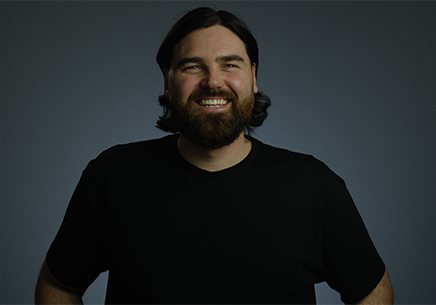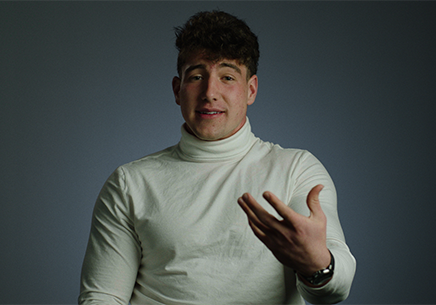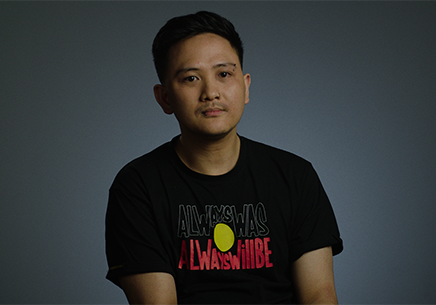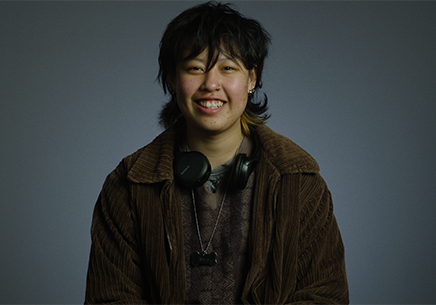Showing information for:
Next steps to get some of that therapy goodness in Australia
So, you’ve watched the What is Therapy series. And now seeing a therapist is a serious thought. So, let's get into it.
Where should I look?
One option is to make an appointment with your GP. They can direct you to a specific practice or therapist. Read the referral tip below for why this can be a good place to start.
You can also try chatting to your family or friends and asking if they have any recommendations of someone they’ve seen and liked.
Or you could Google psychologists in your area. Think about location, areas of speciality, cultural background, and considerations such as neurodiversity, LGBTIQA+, etc.
There’s also the APS website which has the most comprehensive list of psychologists in Australia. Or check out HeadsUpGuys.
If you’re not sure where to start, the Head to Health website can point you in the right direction for you and your situation.
Do I need a referral?
Nope, you don’t. But if you get one via a GP, the government will cover some of the costs through Medicare. The GP will complete a Mental Healthcare Plan that gives you up to 10 Medicare-rebated psychology sessions a year. The GP can then refer you to a specific practice or therapist, or one you’ve found online.
What are the costs?
It depends. If you’ve gone to your GP for a referral and Mental Healthcare Plan, you’ll get a Medicare rebate, so long as you’re seeing a therapist whose services are eligible for one. What usually happens is you’ll pay for the session and then Medicare will reimburse you the rebate amount. Some do bulk bill, but honestly, they’re few and far between. (Don’t blame us, call your local MP). This is high on our list to push for reform on, but in the meantime, call your local MP.
If they don’t bulk bill, you’ll just be out of pocket the gap amount between the Medicare rebate and what the mental health professional charges. Be sure to check with them what your costs and options are when you first get in contact.
There can also be public and community services that are low or no cost. And other options such as workplace EAP services. These are offered at no cost to employees as part of employee benefits in some organisations.
What if money is an issue?
Many therapists will offer reduced rates, sliding scales, and some even offer bulk billing. Make sure you ask when you first make contact if these options are available. There are specific bulk billing clinics (but they’re rare).
Try talking to your GP. There are often options for subsidised care. We're not gonna lie, therapy can be expensive. And while it’s no doubt a financial and time investment in the short term, we’ve often seen it pay off long term. Trust us, this stuff only becomes more of a problem the longer you leave it.
What should I look for in a therapist?
When you Google ‘therapist’ you won’t always get just psychologists or counsellors. You’ll get all sorts of ‘therapists’. There are loads of different types. So, you’ll want to make sure you’re seeing someone who’s suitably qualified and registered at a national level. Which means checking they didn’t get their degree from a cereal box. And also looking out if they’re a member with a professional association like the Australian Psychological Society or Australian Counselling Association.
Also, have a look through their website. Read their bio. Check out their area of practice. Remember, this is not online dating: a therapist's skills matter more than their profile pic.
The next thing to weigh up is whether face-to-face, online or telehealth feels right for you. All are great and have benefits.
What are the wait times?
It can depend on the therapist. Sometimes it’s less than a month, sometimes 3, or even 6 if they have a particular area of specialty. They’ll let you know what the wait time is upfront and can add you to a waitlist. If they have a cancellation, you may be able to get in sooner. Or if you find someone else who can see you sooner, they can just take you off the waitlist.
What if the waiting list is months long?
Keep looking. You don’t have to sit and wait for one specific therapist just because you’re on their waitlist. Keep looking for other options and get in sooner with a different therapist. Go back to your GP and ask for some more names. Be relentless, your mental health deserves it.
What are the types of therapists?
First up, psychologists. They’re university-trained experts in human behaviour. They use evidence-backed approaches (like talking therapies) to help people understand and change up unhelpful behaviour and ways of thinking. Psychologists also work with a range of mental health issues.
Then there are counsellors. They also use talk-based therapies to help people get to know themselves better, cope with challenges they may be facing in life, gain some perspective and learn coping strategies. They aren’t trained to the same level as psychologists, though, when it comes to things like mental health. Also, as a profession, counselling is not formally regulated. So, if you're on the lookout for a counsellor check out the Australian Counselling Association (ACA) or the Psychotherapists and Counsellors Federation of Australia (PACFA).
Last but certainly not least, psychiatrists. They’re doctors who specialise in diagnosing and treating mental illness. They tend to treat complex and serious mental illness and are able to prescribe medication.
What are the types of therapy?
There are heaps of different types. Until you’ve had some experience with therapy though, it probably doesn’t make a too much of a difference what type your therapist uses. Once they get to know you, they’ll probably be able – and willing – to recommend what might be right for you.
Should men see a male therapist?
Not necessarily. Lots of guys have a preference for the gender of their therapist. And that's totally fair. But it's important to remember that a good therapist is a good therapist. So try to focus on whether or not you connect with them first, rather than their gender.
That said, seeing a male therapist is helpful for many men. They might relate better to another man. Or feel more comfortable in the shared lived experience of ‘being a man’. However, less than 25% of therapists are men, so finding one can be tricky.
For other guys, though, they might find this too confronting (at least at the beginning). They might prefer a female therapist for any number of individual reasons, we don’t judge and neither will they! Men, women and anything in between, these therapists are all trained to support you on your mental health journey.
Focus more on seeking out someone you think you’ll feel comfortable with.
Focus on whether or not you connect with them first, rather than their gender.
How do I talk to my therapist for the first time?
A clever trick is to pretend they’re a long-lost friend you haven’t spoken to in a while and update them on your life. These don’t need to be hard, dark and awkward conversations, therapists are just humans. They’re not there to judge, they’re there to confidentially understand and support. If you’ve had a shit time before when trusting someone, that really sucks, but don’t let one bad egg ruin your omelette.
Your new therapist is used to talking to people for the first time, so let the therapist lead and do their thing. It's important for you to be honest, and to let your therapist know if there’s something you’re not ready to talk about yet. Remember, you’re the expert in your life, there’s only so much any therapist can do without you leading the way.
You can always make initial contact with a therapist and request an opportunity to chat over the phone. This gives you a feel for whether they would be a good fit.
Tip 1
Let the therapist lead and do their thing.
Tip 2
Chat to them like a friend you haven’t seen in a while.
Tip 3
Let them know what’s been going on in your life.
How should I prepare for a session? Especially the first one?
1. Jot down questions, goals, fears and motivations. Use a piece of paper or your phone. Think through all of these and try and be as open and honest as you can be. Have a think about your expectations and voice them to your therapist so you’re on the same page. Try this before any session.
2. Have an idea of your goals for therapy. Some good prompting questions to ask yourself are “What do I want to get out of therapy?”, “What changes do I want in my life/what do I want to be different?”, “How will I know when I’m done with therapy – what will be different for me?”, and “What’s not working and why?”
3. Relax. Try to free up your day after the session, or at least try not to immediately rush into another appointment or meeting.

Part of me was thinking everyone's stressed, get over it. But, what kept me on track was knowing that I can't feel like this forever.
Mark

Be fully committed to helping yourself, whatever it takes, however many psychologists you have to see or what you have to learn. There is an answer at the end.
Theodore

I think there's something valuable in being able to let out the things that have been really getting you down in one place, in a single place, and that's the place where you can process it, or you can leave it.
Nathan

It doesn't have to be that formal if you don't want it to be. Like, I made my therapist a slideshow.
Wolf
FREQUENTLY ASKED
QUESTIONS
How often should I see my therapist?
You’ll probably want to start with every week or every other week for the first few sessions. This will help your therapist get to know you and understand your concerns. After a few sessions you’ll both have a better idea about how often to meet.
Most research into the effectiveness of therapy is based on weekly or fortnightly sessions. This is more of an ‘active’ approach to therapy. Monthly sessions, or less, are more of a maintenance approach.
It can depend on how your therapist tends to work, and what you prefer. It’s the time between therapy sessions where the real work (practice/exposure etc.) gets done. So, leave enough time in between to live a little.
What should I do between sessions?
Some therapists give homework to complete between sessions. But most just ask you to think about and try to incorporate what you’ve discussed during session. It might be time to invest in a journal to jot down your midnight brainwaves.
Your therapist will help you implement changes between sessions. This will mostly be based on the work you’re doing with them. Making day-to-day progress is key, and if you fall off the horse, the important thing is you don’t let it run away. Perseverance is the long game.
You can also talk to friends and family about what you’re hoping to work on and ask them to call you out if you’re falling back into patterns. The trusty old eat/sleep/exercise/repeat approach works well, too.
What if I start to struggle between sessions?
You don’t have to just sit and wait for your next appointment. Contact your therapist (or their clinic) and ask to move your next session forward, if possible.
If your therapist has taught you some coping skills, practice them. It’s the same as learning to play a sport, an instrument, or a video game: you have to practice to get better. Embrace the challenge, it’s not supposed to be easy, changing your life never is.
Also know that true, long-term resilience comes from within. So, riding the ups and downs and surviving it is real success. It’s expected the road will be bumpy and you will fall off the horse, but it’s how you get back on that matters.
What if I'm having thoughts of self-harm or suicide?
There is always someone available, 24/7.
If you are having thoughts about self-harm or suicide call a service immediately.
Other support and counselling services
13YARN: Aboriginal and Torres Strait Islander support.
QLife: Anonymous LGBTQIA+ peer support.
MensLine: 24/7 mental health, family violence and anger management support for men.
DirectLine: Support for all affected by alcohol and drugs.
What’s next?
Check out all five ‘What is therapy’ videos if you haven’t already. Re-watching can be helpful, too – and we’re not just saying that because we made them. And hey, if you know someone who might find them useful, share away.
We’d love to learn about your experience on Movember Conversations
We're here to create better tools and resources for you and your life. So open up! Tell us your thoughts and ideas.
